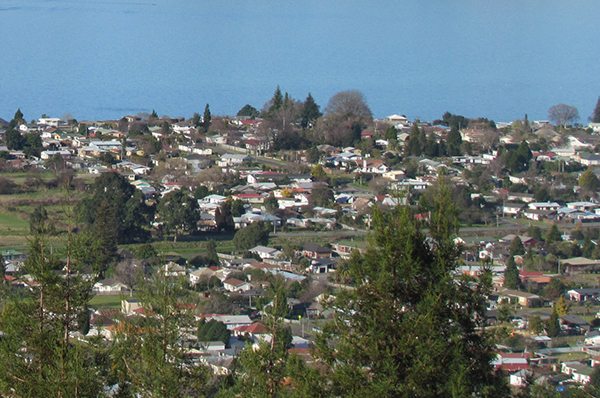BRANZ: A fresh perspective on the housing crisis
By Chelydra Percy, BRANZ Chief Executive
BRANZ Chief Executive Chelydra Percy says it’s time for a fresh perspective on the housing crisis – for us to think about changing the entire paradigm of housing ownership versus renting. That’s how we will find innovative models and bring real change.
New Zealand's uniqueness has been sheeted home in various ways over the past year, not least our response to the COVID-19 pandemic, which sees us living relatively normal lives. Paradoxically, what has often seemed a disadvantage – being a small island nation far removed from the rest of the world – has proven to be an asset. It’s a reminder as to why perspective is so important.
Recently, I’ve been reflecting on how useful it can be to challenge the status quo. To walk in someone else’s footsteps to see what they see. To re-evaluate what we take for granted with a fresh perspective.
Bringing fresh thinking to the crisis
One area that may benefit from such an approach is a rethink about New Zealand’s relationship with housing. The government’s recently announced housing policy has generated thousands of column inches, broadcasts and tweets, highlighting the tension between property owners and renters – the haves and have nots.
At the heart of the issue is that many New Zealanders use housing as a primary generator of wealth and security. We bank on the capital gains made on our homes and investment properties to boost savings and fund our retirement. But by relying on housing to achieve these goals, we have created a model that supports scarcity to drive up value.
One unfortunate consequence of this form of wealth generation is that, increasingly, those on low incomes are virtually locked out of participating. With prices rising, a lack of properties for sale and stringent LVR rules, it becomes almost impossible to save an adequate deposit or access a mortgage.
The inequities this creates are myriad, all but ensuring that a large proportion of our society will remain in social and rental accommodation. The impacts are immediate but also long term, with those forced to remain in expensive rental accommodation unable to save for retirement. So if we’re serious about addressing the housing crisis, we need a different perspective.
I can’t help thinking – what if we’re missing a trick? What if we change the entire paradigm of housing ownership versus renting? What could it look like if we reframed the question and asked how do we create a housing model that enables renters to grow and extract their personal equity? One with the underlying goal of affordability, stability and wealth creation.
We don’t have to look far for an example.
Innovative iwi-led solution
Addressing the inability to get bank funding to build on tribal land has led to a valuable, uniquely Aotearoa solution – iwi-led developments.
One such development is the innovative residential complex Kāinga Tuatahi, built on Ngāti Whātua Ōrākei tribal land in Tāmaki Makaurau Auckland. A New Zealand first, Ngāti Whātua Ōrākei has funded and built quality homes on tribally owned land in a way that also enables owners to grow and extract their personal equity.
The houses are owned on a 150-year leasehold basis – paying a peppercorn rent – and include a guaranteed exit mechanism for the first 15 years of ownership. Many purchasers are first-time homeowners who would have been unable to achieve a home of their own without such a scheme.
This is a great example of a workable, alternative model of homeownership. It not only provides security of tenure for the homeowner, but also provides:
- adequate funding to build a durable and healthy home
- assistance for first-time homeowners with favourable finance, financial education, and sharing of property ownership costs
- a predetermined exit path.
My challenge to all
This is one possible solution to the housing crisis, and there are likely to be other examples globally that can be considered and adapted for the New Zealand context.
My challenge to all of us is to change perspective and to look for the reasons to develop viable homeownership alternatives that reduce housing inequity rather than excuses not to.
First published June 2021 in build magazine, issue 184.
Date posted: 17 June 2021

